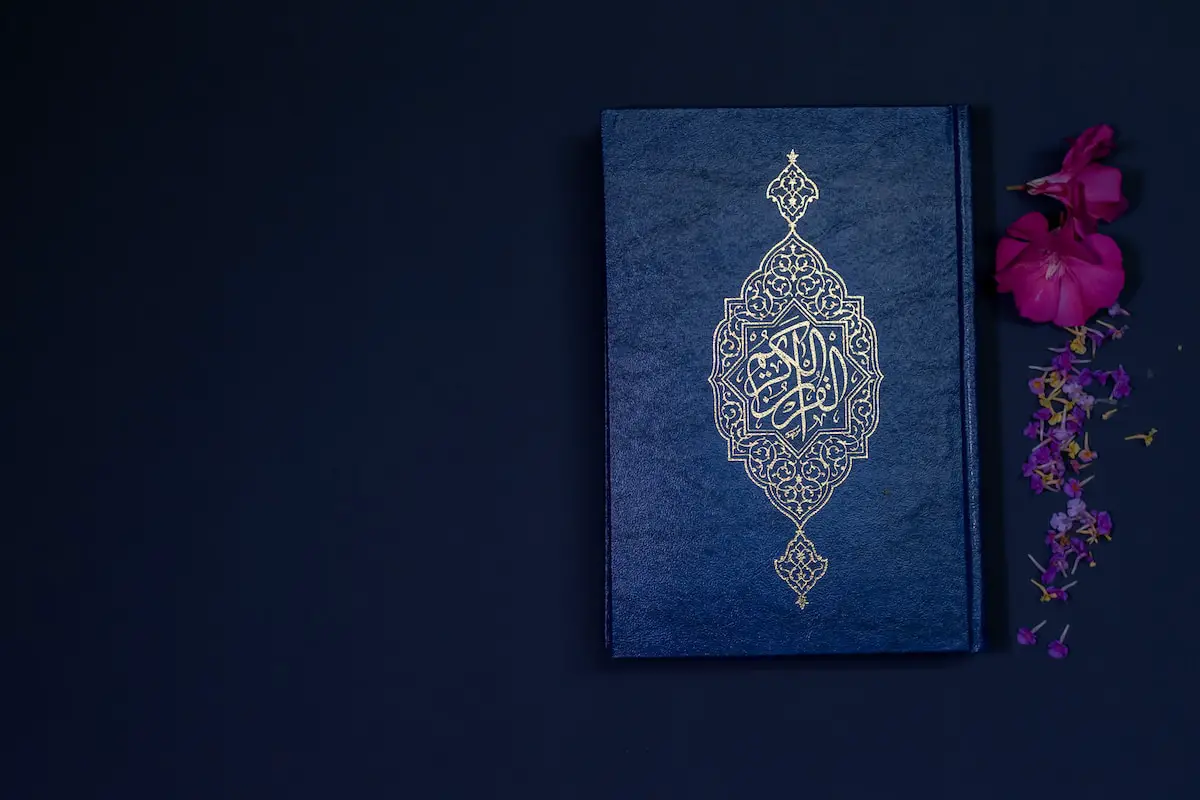Do you find yourself asking the question, ‘What God does Islam worship?’ Do you feel intrigued and want to know what God is worshipped in Islam?
Muslims around the world know that the one true God is Islam’s central belief.
Allah is given many titles in the Quran, such as the Creator, the Sustainer, the Merciful and the Compassionate.
In Islam, Allah is the deity that is worshipped and the name of this deity is not shared with any other religion or any other belief system.
Allah is viewed as the one who created all things that are visible and invisible and is the Creator and Sustainer of all that exists.
He is the Lord of the Heavens and the Earth, the Alpha and the Omega, and the Lord of the Worlds.
He is the Creator of humankind and is believed to be merciful and forgiving. The mercy of Allah is believed to be infinite and He is all-knowing and all-wise.
The Quran teaches that Islam is the way of peace and that true religion is a path of justice and mercy.
Islam teaches that Allah is the one, true God Who is unique and incomparable. The vast majority of Muslims believe that Allah’s Prophets include Adam, Noah, Abraham, Moses, David, Solomon, John the Baptist, and Jesus, as well as the final Prophet, Muhammad.
All these Prophets were sent by Allah to call people to believe in Him.
The faith of Islam teaches that all human beings are the children of Adam and have the same father.
Muslims are taught to respect all races, cultures and religions, to be grateful to those who take care of them, to look after relatives and be hospitable to strangers.
Muslims are required to strive in the path of Allah and pray five times a day.
They are commanded to believe in the divine teachings of justice, mercy and righteousness.
Muslims are expected to be kind and generous to one another and to be truthful and honest in speech, action and thought.
The Quran basically serves as the central creed for Muslims, and this is where all their teachings originate.
The Quran is the divine revelation sent to the Prophet Muhammad, peace be upon him, through the angel Gabriel, and is said to be the literal word of God.
In the Islamic tradition, there is a deep cultural reverence for Allah.
Muslims use His titles in various ways to communicate to their fellow man a reverence and a sense of awe for His divine power.
Allah is also revered in prayer, as the One whom Muslims turn to for guidance and mercy.
Muslims also believe that God is always near to them, and in every moment they are connected to Him. They pray and ask for His guidance in every aspect of their life.
The faith of Islam calls believers to worship God alone, and to serve Him humbly and faithfully.
Muslims strive to live in a way that pleases God, according to His guidance and His will.
When Muslims worship Allah, they do so with love, humility, faithfulness and devotedness. They seek guidance from Him in their spiritual development and strive to be better people.
The Five Pillars of Islam
Islam consists of five core pillars, namely Shahada (Declaration of Faith), Salat (Prayers), Zakat (Obligatory Charity), Saum (Fast in the holy month of Ramadan) and Hajj (Pilgrimage to Makkah). All five pillars are important in a Muslim’s life and form an integral part of the Muslim faith and practice. These pillars teach Muslims about the fundamentals of worshipping God and about leading a life that pleases God.
The Shahada is the cornerstone of the Islamic faith. It is the declaration of faith that there is no God but Allah, and that Muhammad is his Messenger. This declaration of faith must be uttered by every Muslim. In prayer, Muslims stand in humble submission to Allah and express their need for Him in their lives. Prayers are offered five times daily and are an essential part of daily life for a Muslim.
Zakat is the obligatory charity given by Muslims to benefit the less fortunate and is considered one of the five pillars of the faith. It is essentially a way for a Muslim to purify themself and gain closeness to Allah. Zakaat is an obligation on all those who have the ability to pay it.
The fast of Ramadan is a spiritual and physical time of fasting for Muslims. During this month, each day, Muslims fast from sunrise to sunset and abstain from food and drink until the sun sets. It is considered to be a special holy time of the year. The purpose of Ramadan is to learn self-discipline, and to show loyalty to Allah by preparing oneself for the month of Hajj.
Hajj is the grand annual pilgrimage to Makkah that all Muslims are required to do at least once during their lifetimes. On this journey, Muslims go to the House of God, the Kaaba, and stand in prayer and supplication before Him. This is also a time to offer praise and thanks to Allah for all the blessings He has bestowed upon them.
The Concept of Tawhid
Tawhid is an Arabic term that translates to the “Oneness of God”. It is the central concept in Islam and is closely related to the first pillar of Islam, the Shahada or the declaration of faith. Believing in Tawhid means that one accepts and believes that Allah is the one God and that no other Deity is to be worshipped but Him. Muslims affirm their faith in the Oneness of God by exclusively turning to Him in supplication and prayer.
Tawhid is a difficult concept to understand for non-Muslims, as it requires an understanding of the metaphysics of the Quran and Hadith. Essentially tawhid refers to Allah’s absolute oneness, which means there is one God alone with no partners, colleagues, or associates. Furthermore, the notion of Tawhid is emphasised in the Islamic faith as a fundamental part of worshipping Allah.
The idea of tawhid is also linked to the concept of justice. The righteous are those who believe in Allah and who live by the teachings of the Quran and the Sunnah of the Prophet Muhammad. Faith in the concept of tawhid is necessary for any Muslim as it is a reminder to believers that Allah is absolute and that He should be worshipped exclusively.
In addition, the concept of tawhid also has implications for social justice and order. This includes respecting the rights of others and showing mercy in one’s judgments. The concept of tawhid also teaches Muslims the importance of honesty, sincerity, and keeping one’s promises. In a nutshell, the concept of tawhid encourages Muslims to live their lives with Allah at the centre, and strive to do what is right and just.
The Role of the Qur’an and Sunnah of Prophet Muhammad
The Qur’an is the foundational source of the Islamic faith. Muslims consider the Qur’an to be the direct revelation from Allah to the Prophet Muhammad through the angel Gabriel. Muslims understand the Qur’an to be the literal word of Allah, and hence, its words are viewed as infallible and eternal.
The Sunnah is the set of practices that serves as an example of Prophet Muhammad’s life and teachings. These include his daily habits, his moral character, his decisions, and his life. The Sunnah is derived from the sayings, actions, and approvals of the Prophet Muhammad, and is used to gain further insight into the intent of the Qur’an. Muslims strive to live in accordance with the Sunnah of the Prophet Muhammad.
The Qur’an and the Sunnah guide Muslims to be closer to worship God in the right way. It also helps Muslims to understand the teachings of Allah, and fulfil His commands. The Qur’an and Sunnah provide an insight into the character of Allah. Thus, the Scriptures and their relationship to worship and justice are of utmost importance for Muslims.
The Sunni tradition of Islam emphasises the importance of the Qur’an and the Sunnah as the sole channels for knowledge about religious practice. However, there is also an understanding of the role of reason and reflection in understanding and interpreting the Qur’an and the Sunnah. Reasoning is understood to be an important tool in understanding the guidance of the Qur’an and Sunnah.
The Meaning of Submission to Allah
Submission to Allah is a part of the Islamic faith that is integral to how Muslims perceive and worship God. To illustrate, many Qur’anic verses emphasise that Allah is the ultimate Creator and is all-knowing and all-powerful. Thus, as creatures and dependent creatures, humans must submit to Allah’s will. Submission to Allah is the ultimate goal.
Muslims believe that submission to Allah is the culmination of belief in Allah. It involves complete obedience to Allah and His divine will. Submission acknowledges the ultimate authority of Allah over all creatures and human beings. It also involves acknowledging Allah’s wisdom and mercy.
Islam teaches Muslims that submission to Allah is the only way to success in the Hereafter. Submission is not something to be taken lightly, but rather, it is something that requires effort. Submission requires effort from Muslims to read the Quran, attend and learn about their faith, and do good works.
Submission also requires Muslims to call out to Allah in complete humility and submission. This brings feelings of joy and happiness in returning to Allah, in getting closer to Allah, and in being mindful of His greatness. Submission involves accepting the power of Allah over one’s life and recognizing that He is the ultimate decision maker and ruler.
The Centrality of Hope in Islam
Hope is an essential part of the Islamic faith and is deeply ingrained within its fabric. Hope is quintessential for understanding the true nature of Allah and His mercy.
Through hope, Muslims are taught to trust in His divine wisdom and power.
Furthermore, hope is a reminder that Allah will always respond to a believer’s sincere heart.
A central Islamic belief is that, no matter how dire the situation, Muslims will always have hope in the merciful nature of Allah and His will.
Prophet Muhammad once said that Allah hates for anyone to lose hope in Him. Thus, it is the core belief of Muslims that no matter what happens, Allah will always be with them.
Hope can often be seen in the daily life of Muslims as they turn to Allah in every moment of their lives. It is through the hope in Allah that Muslims are able to face difficulties and problems.
When difficulties arise, Muslims strive to turn to Allah in prayer and supplication, trusting that He will guide them and show them the proper way forward.
In conclusion, Muslims turn to Allah for hope, mercy, and guidance. Allah is the one true God who is worshipped in Islam, and He is viewed as being merciful and forgiving.
The five pillars of Islam serve as a guide toward worshipping God and living a life that pleases Him.
The concept of Tawhid is a reminder to believers that Allah should be worshipped exclusive.
The Qur’an and Sunnah provide guidance to Muslims on how to live their lives.
Submission to Allah involves complete obedience and acknowledging His ultimate wisdom and authority.
Lastly, Hope is an essential part of the Islamic faith and is a reminder to Muslims that Allah will always be by their side.

Faithway.info, your online sanctuary for deepening your spiritual journey and mastering the teachings of the Bible. At Faithway.info, we are passionate about making the wisdom of the Bible accessible to everyone, fostering a community dedicated to growth, understanding, and support.





